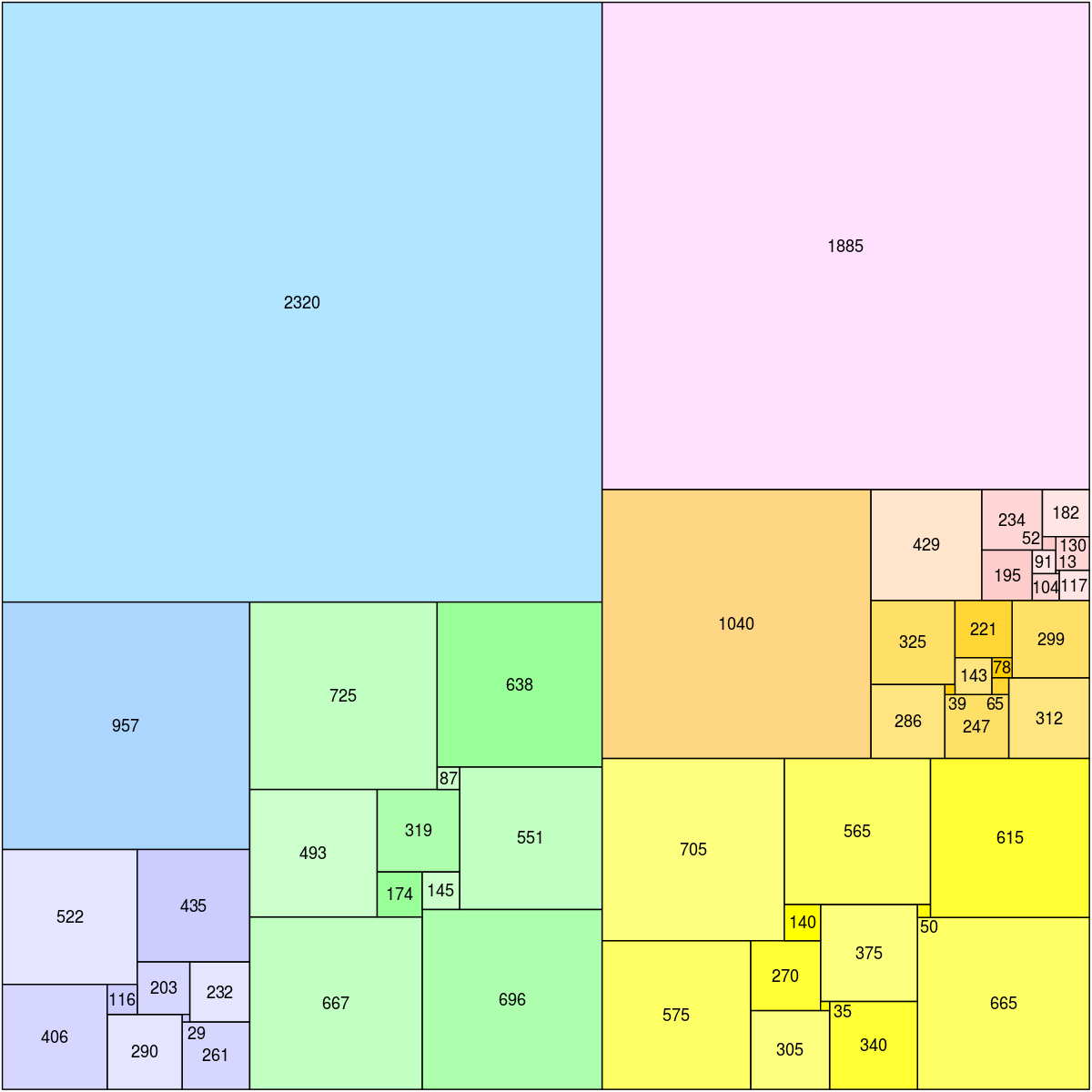
Is this knapsack algorithm or bin packing? I couldn't find an exact solution but basically I have a fixed rectangle area that I want to fill with perfect squares that represents my items where each have a different weight which will influence their size relative to others.
They will be sorted from large to smaller from top left to bottom right.
Also even though I need perfect squares, in the end some non-uniform scaling is allowed to fill the entire space as long as they still retain their relative area, and the non-uniform scaling is done with the least possible amount.
What algorithm I can use to achieve this?
There's a fast approximation algorithm due to Hiroshi Nagamochi and Yuusuke Abe. I implemented it in C++, taking care to obtain a worst-case O(n log n)-time implementation with worst-case recursive depth O(log n). If n ≤ 100, these precautions are probably unnecessary.
#include <algorithm>
#include <iostream>
#include <random>
#include <vector>
namespace {
struct Rectangle {
double x;
double y;
double width;
double height;
};
Rectangle Slice(Rectangle &r, const double beta) {
const double alpha = 1 - beta;
if (r.width > r.height) {
const double alpha_width = alpha * r.width;
const double beta_width = beta * r.width;
r.width = alpha_width;
return {r.x + alpha_width, r.y, beta_width, r.height};
}
const double alpha_height = alpha * r.height;
const double beta_height = beta * r.height;
r.height = alpha_height;
return {r.x, r.y + alpha_height, r.width, beta_height};
}
void LayoutRecursive(const std::vector<double> &reals, const std::size_t begin,
std::size_t end, double sum, Rectangle rectangle,
std::vector<Rectangle> &dissection) {
while (end - begin > 1) {
double suffix_sum = reals[end - 1];
std::size_t mid = end - 1;
while (mid > begin + 1 && suffix_sum + reals[mid - 1] <= 2 * sum / 3) {
suffix_sum += reals[mid - 1];
mid -= 1;
}
LayoutRecursive(reals, mid, end, suffix_sum,
Slice(rectangle, suffix_sum / sum), dissection);
end = mid;
sum -= suffix_sum;
}
dissection.push_back(rectangle);
}
std::vector<Rectangle> Layout(std::vector<double> reals,
const Rectangle rectangle) {
std::sort(reals.begin(), reals.end());
std::vector<Rectangle> dissection;
dissection.reserve(reals.size());
LayoutRecursive(reals, 0, reals.size(),
std::accumulate(reals.begin(), reals.end(), double{0}),
rectangle, dissection);
return dissection;
}
std::vector<double> RandomReals(const std::size_t n) {
std::vector<double> reals(n);
std::exponential_distribution<> dist;
std::default_random_engine gen;
for (double &real : reals) {
real = dist(gen);
}
return reals;
}
} // namespace
int main() {
const std::vector<Rectangle> dissection =
Layout(RandomReals(100), {72, 72, 6.5 * 72, 9 * 72});
std::cout << "%!PS\n";
for (const Rectangle &r : dissection) {
std::cout << r.x << " " << r.y << " " << r.width << " " << r.height
<< " rectstroke\n";
}
std::cout << "showpage\n";
}

If you love us? You can donate to us via Paypal or buy me a coffee so we can maintain and grow! Thank you!
Donate Us With